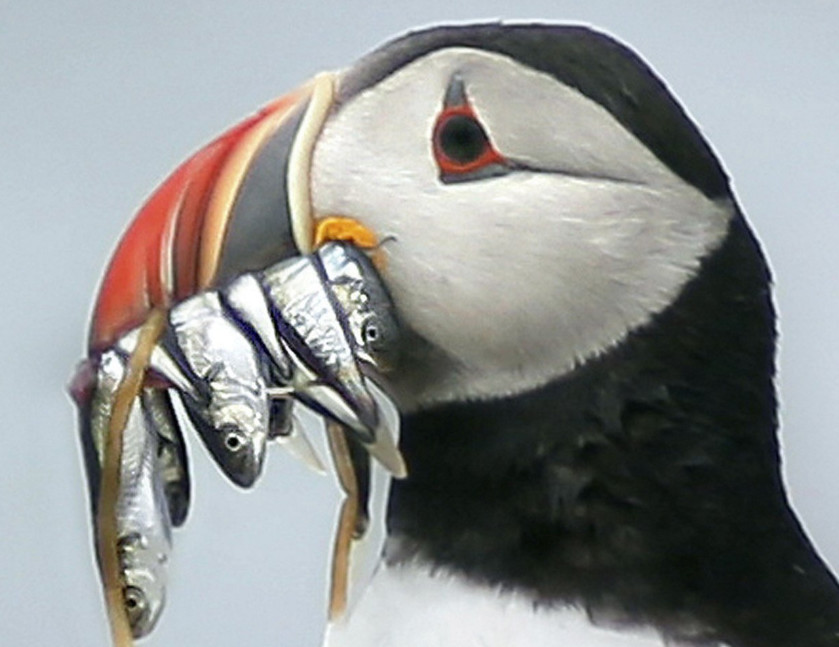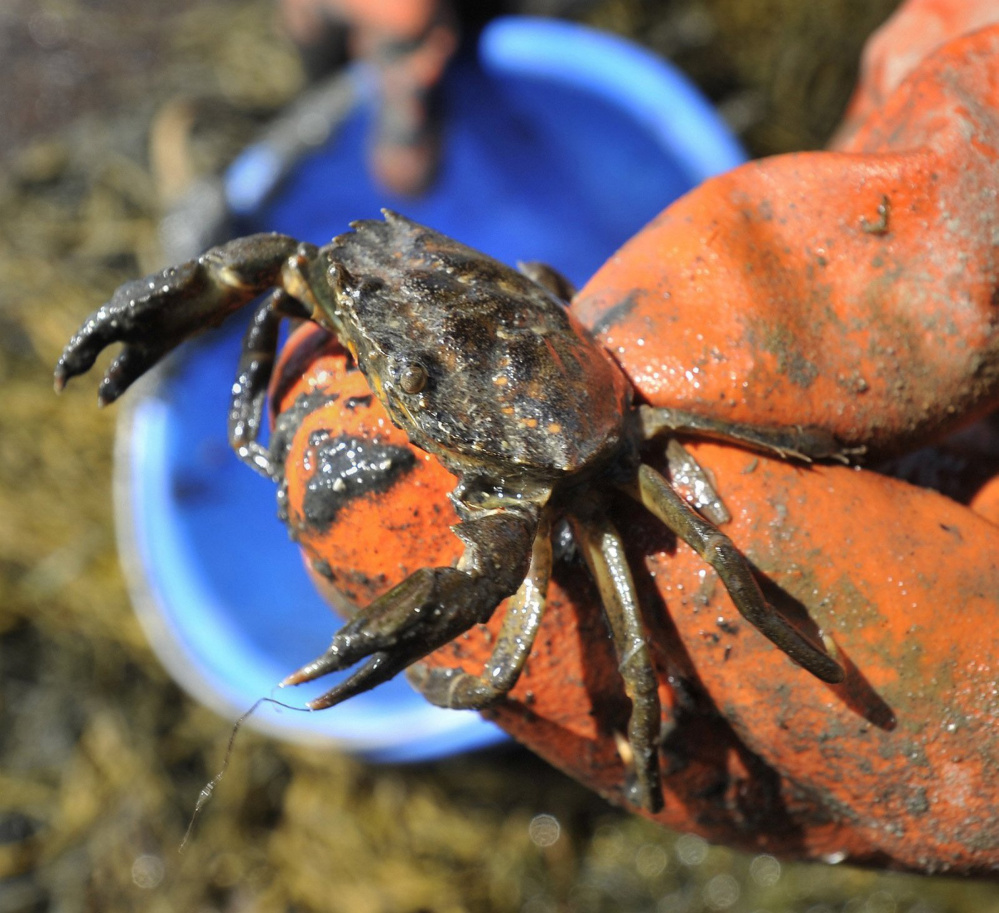With the United States coming off the warmest winter on record, scientists are monitoring the Gulf of Maine for a possible repeat of an “ocean heat wave” four years ago that led to the destruction of clam populations, a collapse of Maine lobster prices, and incursions of warm-water species such as squid and blue crabs into Maine bays.
“We’re pretty much locked in now to 2012-like conditions,” said Andrew Pershing, chief scientific officer at the Gulf of Maine Research Institute in Portland. “If you look at the temperatures right now in the Gulf of Maine, these are the temperatures you expect to see in mid-April, and it seems we’ve really stopped cooling.”
“If it’s like 2012, temperatures will hover for a few weeks and then really pick up,” he said.
Pershing, who has been monitoring buoy and satellite data as part of a lobster forecasting project, expects 2012-like phenomena this year: an explosion of clam-eating green crabs, lobsters molting extremely early, and sightings of mid-Atlantic species. He was the lead author in a scientific study published in the journal Science last October that suggested the warming gulf was a major factor in the failure of cod populations to recover despite fishing restrictions.
Glen Gawarkiewicz, an oceanographer at the Woods Hole Oceanographic Institution, said that as of a week ago, the water temperature recorded at a key offshore measuring buoy on the Nantucket Shoals at the southern edge of the gulf was 44.1 degrees, just 0.7 degrees cooler than the same day in 2012.
“We have passed the worst of the cooling season in winter, so I would not expect big temperature drops at this point,” he said. “I think there is a strong possibility that the temperatures this summer will be comparable, and possibly slightly below that of 2012.”
This winter was the warmest in the U.S. since record-keeping began 121 years ago, according to the National Oceanic and Atmospheric Administration, with Maine and the other five New England states breaking their individual all-time average winter temperature records, the only states in the country to do so. Maine and Massachusetts were the only states in the country to also break their records for the highest single winter temperature reading.
But Nick Record, a research scientist at the Bigelow Laboratory for Ocean Sciences in Boothbay, said he’s not certain the warming trend is set in stone. A cooler-than-average spring and early summer could prevent a recurrence of an “ocean heat wave,” he said. (Disclosure: This reporter is a Bigelow trustee.)
“It’s more likely at this point that we’d have a warm summer and a heat wave than in a typical year, but it isn’t guaranteed,” Record said. “But if we did have another year that’s off the charts, it’s important for us to carefully observe what happens because we’re one of the first parts of the world ocean to have gone through these really rapid changes.”
Record has been crowd-sourcing observations of unusual species – especially jellyfish, but also squid eggs and other phenomena – emailed to him by Maine residents (jellyfish@bigelow.org) in an effort to get as many eyes on the changes that occur when gulf water temperatures spike.
During the winter of 2011-2012, unusually warm temperatures caused the gulf to never properly cool down, and things warmed further through the summer, sending shock waves throughout the ecosystem.
Lobstermen started catching mounds of newly shed lobsters in May, six weeks ahead of their usual schedule, creating a glut that threw off the overwhelmed Maritime Canadian processing plants that usually purchase most of these fragile soft-shells, which aren’t hardy enough for the live whole lobster trade. Prices fell so low that the processors eventually jumped in, buying up the glut of cheap Maine lobsters instead of local lobsters, prompting eastern New Brunswick lobstermen to blockade trucks of Maine lobsters to prevent them from unloading.
On Eastern Egg Rock, puffin chicks starved because their parents were unable to find appropriate food for them, while off Grand Manan Island, northern right whales failed to find swarms of the tiny, cold-dependent marine copeods they like to eat.
Meanwhile, the warmer water triggered an explosion in the population of green crabs, which proceeded to devour most of the clams in Freeport, Brunswick, Penobscot and other towns.
Brian Beal, a marine shellfish ecologist at the University of Maine at Machias and the Downeast Institute, said the overall mass of green crab went down as the Gulf of Maine cooled in 2014 to 2015, but there are still large numbers of them – they’re just smaller.
“If seawater temperatures increase quickly in the spring and summer like in 2012-2013, we could see another explosion in the larger ones later in the summer or early fall,” he said.
Chad Coffin of Freeport, president of the Maine Clammers Association, says that would be a disaster.
“Here in Casco Bay, the soft-shell clam industry has totally collapsed, and a return to water temperatures experienced in 2012 could spell doom for a rebound that clammers have pinned to juvenile clams,” he said.
Experts say there’s little that Maine can do by itself to address the underlying issue: the continued warming of the Earth because of greenhouse gas emissions from factories, cars, power plants, livestock feedlots and other human activities. Maine produces just 0.32 percent of the nation’s greenhouse gas emissions, according to the U.S. Environmental Protection Agency, or about 0.05 percent of those in the world.
Instead, they say, Mainers could mitigate the damage by shoring up the Gulf of Maine ecosystem, reducing other stresses that they can control and learning ways to protect resources from some of the worst effects, including ocean acidification, a byproduct of the changing climate that hampers the survival of at least some juvenile shellfish species.
Send questions/comments to the editors.



